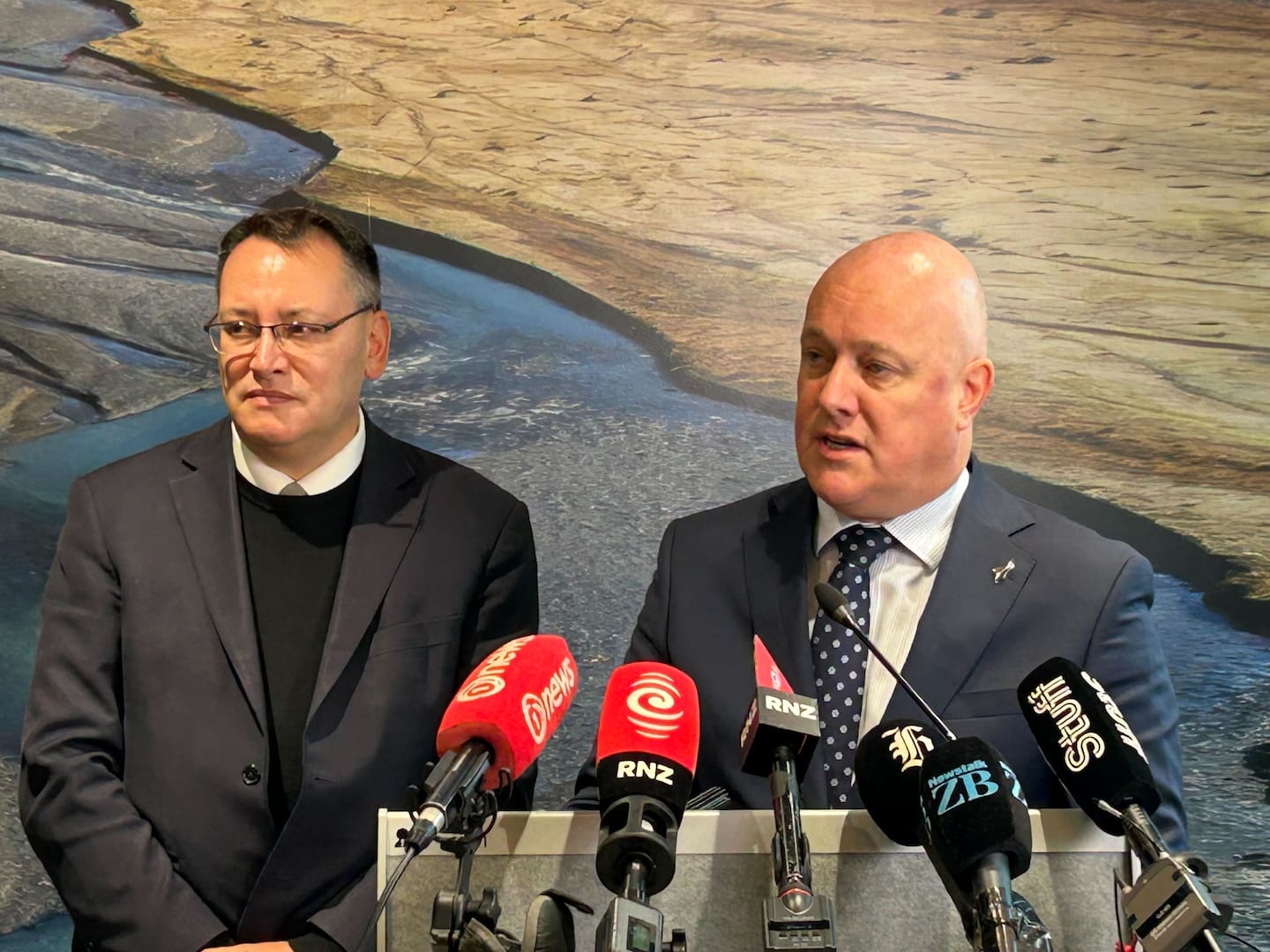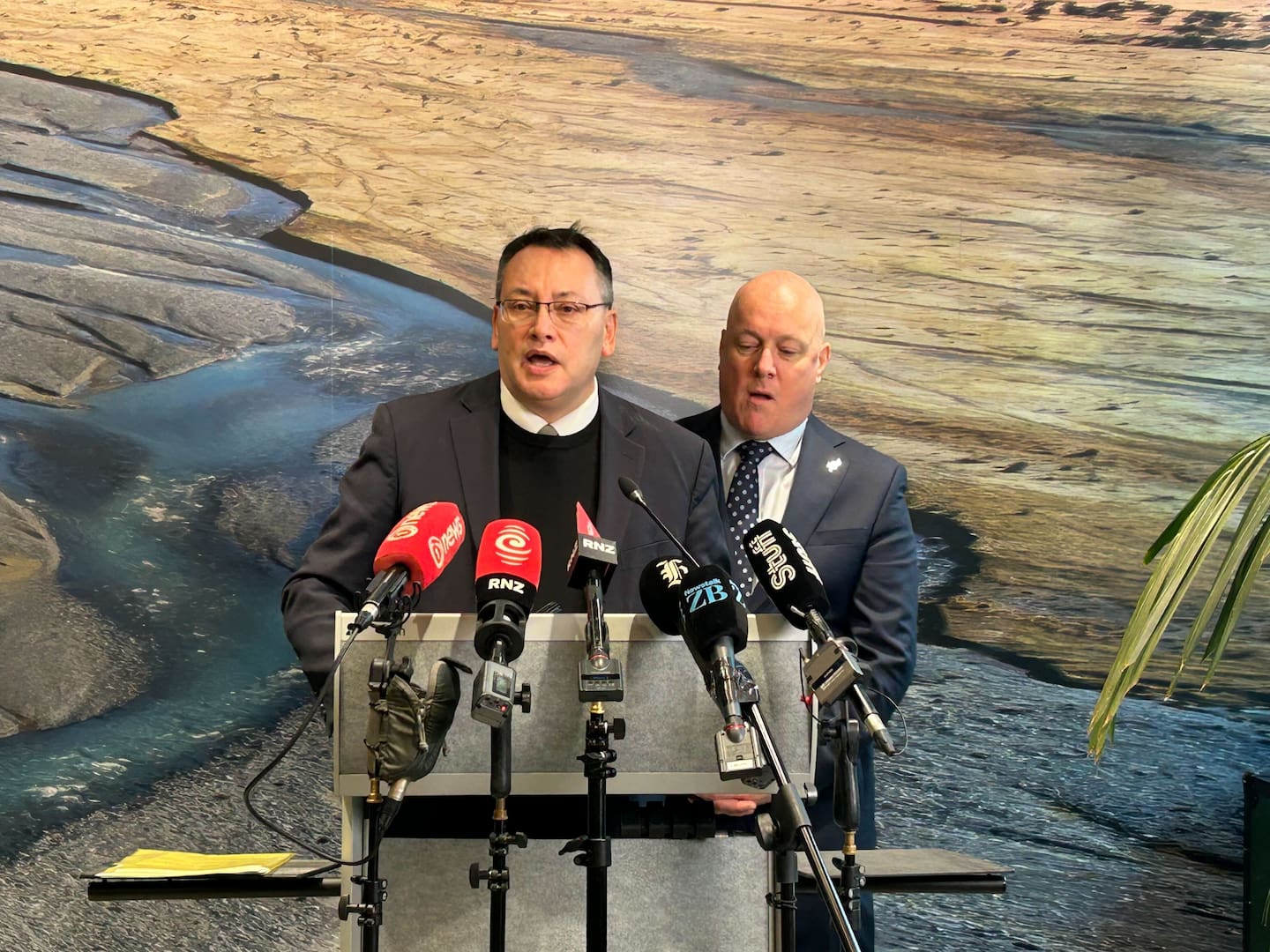Prime Minister Christopher Luxon is making a major science announcement in Auckland today.
Luxon is at Earth Sciences NZ in central Auckland this morning alongside Dr Shane Reti, the Minister of Science, Innovation and Technology.
Luxon’s press conference will be livestreamed from the top of this article at 9am.
Luxon said today they were “extremely proud” to announce the establishment of the New Zealand Institute for Advanced Technology.
“This is the fourth of our institutes and our cornerstone of our government’s plan to build a high-tech, high-value economy, one that delivers long-term prosperity for all New Zealanders,” he said.
“I expect it to be forward-looking, with the support and advice of the Science Advisory Council, to invest in new areas of science that are reshaping the global economy, where we can develop excellent talent, create high-paying jobs, build new sectors, and increase our export earnings.”
 Dr Shane Reti and Prime Minister Christopher Luxon are speaking in Auckland today on a major science announcement. Photo / Annaleise Shortland
Dr Shane Reti and Prime Minister Christopher Luxon are speaking in Auckland today on a major science announcement. Photo / Annaleise Shortland
Reti said it was a “major step forward”.
“We are committing $231 million over the next four years to the New Zealand Institute for Advanced Technology,” he said.
“The institute will invest in research in areas such as artificial intelligence, quantum technologies, and synthetic biology, fields that have the ability to transform industries, grow high-value exports and elevate New Zealand’s global competitiveness.“
The institute will be based in Auckland and be supported by a focused network of research centres working in collaboration with universities, industries and existing institutions.”
Addressing fears about AI, Luxon said it was important that the framework managed the negative implications.
“But I do want to be very clear, in a country where we have low levels of economic productivity, this is one of the five things that we know are absolutely critical to embracing more of in order to lift the living standards of New Zealanders,” he said.
“There is a lot more upside with AI. And this is a country that needs to embrace a lot more AI, quantum computing, and synthetic biology.
“All of that adoption of technology will actually make our businesses and our research much more commercial and actually improve productivity.”
 Reti and Luxon said it was a major move for the country. Photo / Annaleise Shortland
Reti and Luxon said it was a major move for the country. Photo / Annaleise Shortland
Luxon said he was very confident they would have enough scientists to fill the institute.
“I’ve got every confidence we’ve got the people that we need to get on and do it,” he said.
“We’re already doing some world-leading work in different parts of the country.
“We have the smartest, best people in the world, period. And actually, if we can apply and use our science in a way that actually powers up our future growth and innovation, that’s what’s going to create the high-paying jobs for future New Zealanders, our kids and our grandkids, which is pretty exciting.”
He disputed claims New Zealand was lagging behind the rest of the world in using AI in business, but said government could use it more.
“I think this has got the power to transform government to make it much more streamlined, more focused, more customer-centric, delivering for Kiwis as a result.”
Education Minister Erica Stanford is also in Auckland today, expecting to make an education announcement.
Earlier this week, she revealed that the Government is ditching open-plan classrooms in favour of standard designs that “prioritise flexibility”.
Stanford said she had received overwhelming feedback from schools across New Zealand that open-plan classrooms were not meeting the needs of students.
She made the announcement on Wednesday at Newlands Intermediate in northern Wellington, which is getting 10 new classrooms.
“While open-plan designs were originally intended to foster collaboration, they have often created challenges for schools, particularly around noise and managing student behaviour,” Stanford said.
She said in many cases, open-plan classrooms reduced flexibility, rather than enhanced it.
“We have listened to the sector and new classrooms will no longer be open-plan.”
All new classrooms would be built using standard designs that prioritise flexibility over open-plan layouts, she said.
“For example, the use of glass sliding doors mean spaces can be open when classes collaborate but can also close for focused learning. This approach ensures schools have fit-for-purpose environments that support a range of teaching and learning styles.”
Stanford has also announced that Aotea College will be getting 16 new classrooms.
Take your Radio, Podcasts and Music with you









